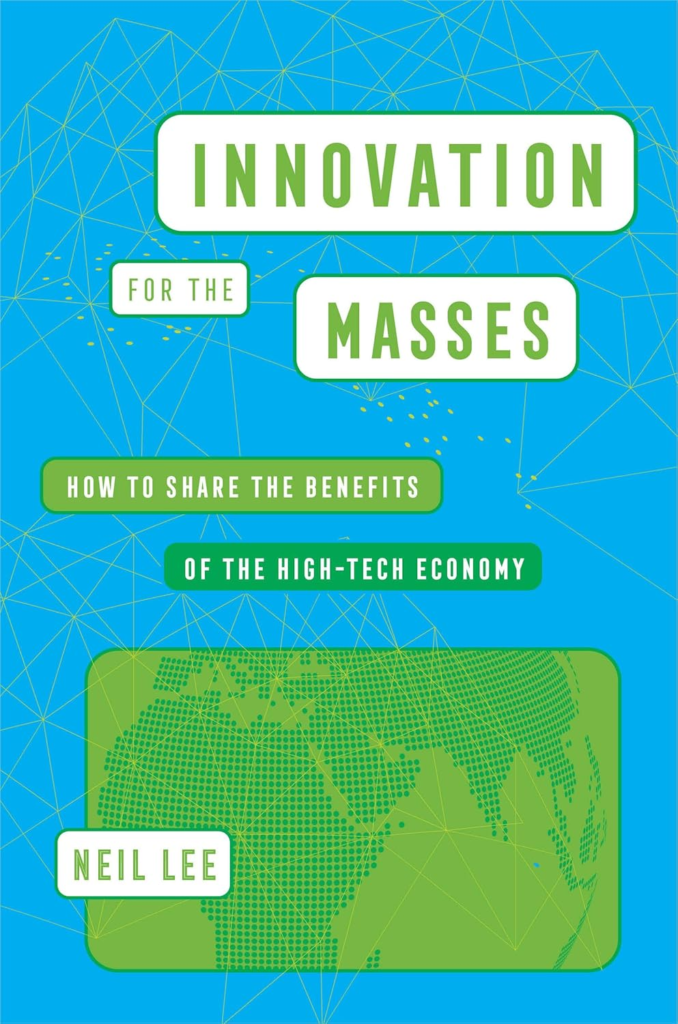Introduction to Technology and Economic Growth
Technology has long been recognized as a pivotal force in shaping economic growth and development. The interplay between technological advancements and economic performance can be traced throughout history, as innovations in various sectors have consistently acted as catalysts for productivity and efficiency. This relationship is vital in understanding the dynamics of contemporary economies, where rapid developments in technology often lead to enhanced output and innovation capacity, ultimately fostering economic prosperity.
At the heart of this discussion is the concept of productivity, which refers to the efficiency with which goods and services are produced. Technological innovations contribute significantly to productivity gains by streamlining processes, reducing production costs, and enabling higher quality output. As nations invest in technology, they often experience accelerated productivity, leading to increased wealth and a higher standard of living for their populations.
Moreover, technological progress fosters innovation, a critical component of economic growth. Innovation encompasses not only the creation of new products and services but also improvements in existing processes and systems. Countries that prioritize technological development often find themselves at the forefront of global markets, enjoying enhanced competitiveness and market share. This emphasizes the importance of continuous investment in technology and research as key drivers of sustained economic advancement.
Globalization further intertwines the relationship between technology and economic development. The advent of the internet and communication technologies has redefined global trade, allowing nations to connect and exchange goods and services more seamlessly. This interconnectedness enables countries to leverage technological advancements and position themselves favorably within the global economy, thereby enhancing their growth prospects.
In essence, technology serves as a fundamental determinant of economic growth, influencing productivity, fostering innovation, and facilitating globalization. Understanding these interconnections is crucial for policymakers and business leaders alike as they navigate the complexities of the modern economic landscape.
(Purchase today by clicking on the image)
The Role of Innovation in Enhancing Productivity
Innovation plays a pivotal role in technological advancement, serving as a catalyst that enhances productivity across various industries. As new technologies emerge, they facilitate the refinement of production processes, leading to more efficient output. This improvement in efficiency is not merely about speed; it encompasses better utilization of resources, optimized workflows, and reduction in waste—all contributing to an elevated level of productivity.
Take the manufacturing sector, for instance, where the implementation of advanced robotics and automation systems has revolutionized production lines. These innovations allow for the precise execution of tasks that were once labor-intensive, reducing the margin of error and dramatically increasing output rates. The integration of smart technologies, such as the Internet of Things (IoT), further enables real-time monitoring and predictive maintenance, thereby minimizing downtime and ensuring consistent productivity levels. Such enhancements not only improve product quality but also lead to significant cost reductions, paving the way for competitive pricing and increased market share.
The information technology industry exemplifies another area where innovation has driven productivity gains. Cloud computing technology has transformed the way businesses operate, providing scalable solutions that allow small and medium enterprises to access resources previously available only to larger corporations. This democratization of technology enhances productivity by enabling organizations to focus on core competencies rather than investing heavily in infrastructure. Additionally, software advancements often introduce automation of tedious tasks, allowing employees to allocate their time towards more strategic efforts, further augmenting productivity.
In conclusion, innovation as a component of technological advancement crucially impacts productivity by streamlining processes, improving product quality, and driving cost efficiency. Sectors like manufacturing and information technology showcase these benefits, illustrating how sustained innovation directly contributes to overall economic growth. Emphasizing the significance of continuous innovation can empower industries to remain competitive in a rapidly evolving global market.
Globalization and Technology: Connected Economies
The advent of technology has been a significant catalyst in the process of globalization, altering the landscape of international trade and economic interactions. Enhanced communication technologies, such as the internet and mobile connectivity, have revolutionized the way businesses and consumers engage with one another across borders. This transformation has facilitated not only increased trade but also a more profound understanding of diverse markets, which enables companies to adapt their strategies according to local demands. As businesses leverage technologies to communicate effectively and efficiently, they lay the groundwork for expanded trade relationships, opening doors to new opportunities and markets.
Transportation advancements further bolster globalization by dramatically reducing the time and cost associated with moving goods and services across countries. Innovations in logistics and supply chain management have enabled firms to operate on a global scale, tailoring their production processes to tap into competitive advantages in different regions. This interconnectedness promotes a dynamic economic environment where countries specialize in various sectors based on their strengths, thereby driving efficiency and innovation. For example, manufacturers in developed nations may rely on raw materials sourced from developing countries, illustrating the symbiotic relationships fostered through technological facilitation.
The mobility of labor has also been influenced significantly by technological developments. Remote work technology and digital platforms enable a flexible workforce, allowing talent to cross geographic boundaries with remarkable ease. This global labor mobility not only fills skill gaps in different economies but also enriches the labor market through diverse perspectives and expertise. The cumulative effect of these elements—communication, transportation, and labor mobility—contributes to robust economic growth, benefitting both developing and developed nations through increased investment flows and the enhancement of local economies. As technology continues to evolve, its role in facilitating globalization remains critical for future economic development.
Challenges and Future Outlook for Technology-Driven Growth
The rapid advancement of technology has profoundly influenced global economic growth, yet it also presents significant challenges that need to be addressed. One of the most pressing issues is income inequality, which has emerged as a consequence of unequal access to technology. While some sectors have benefited from technological advancements, others have lagged, exacerbating disparities in wealth and opportunities. Governments must implement policies that promote equitable access to technology, ensuring all societal segments can participate in and benefit from economic growth.
Job displacement is another challenge arising from the integration of technology in the workforce. As automation and artificial intelligence take over routine tasks, many workers face the risk of losing their jobs, leading to increased unemployment rates in certain sectors. To counteract this trend, it is vital for educational institutions and organizations to prioritize reskilling and upskilling initiatives. These programs can equip workers with the necessary skills to thrive in a technologically-driven economy, thus fostering an environment that supports sustainable growth.
The digital divide remains a significant barrier to the equitable benefits of technological innovation. Access to the internet and digital tools varies greatly across geographic and socioeconomic boundaries. Ensuring that marginalized communities have access to technology and high-speed internet is essential for mitigating economic disparities and fostering inclusive growth.
Looking ahead, it is essential to recognize emerging technological trends, such as the growth of artificial intelligence, blockchain, and the Internet of Things. These innovations have the potential to reshape industries and drive further economic growth. However, as reliance on technology increases, it is crucial for governments and organizations to adopt a balanced approach that promotes social equity while harnessing the benefits of technological advancements. By proactively addressing the challenges and fostering a more inclusive environment, society can navigate the complexities of technology-driven growth more effectively.
(Purchase today by clicking on the image)






